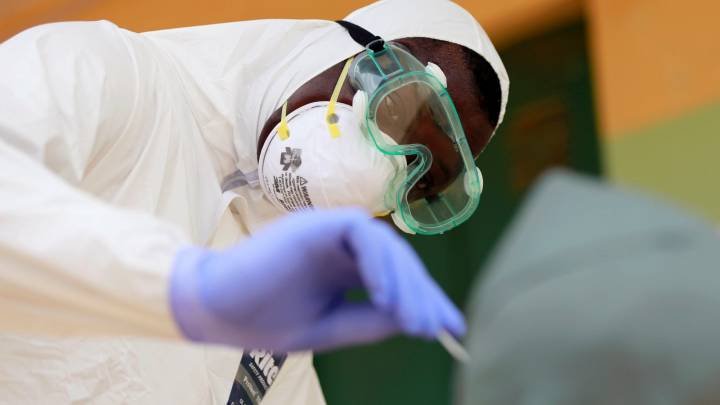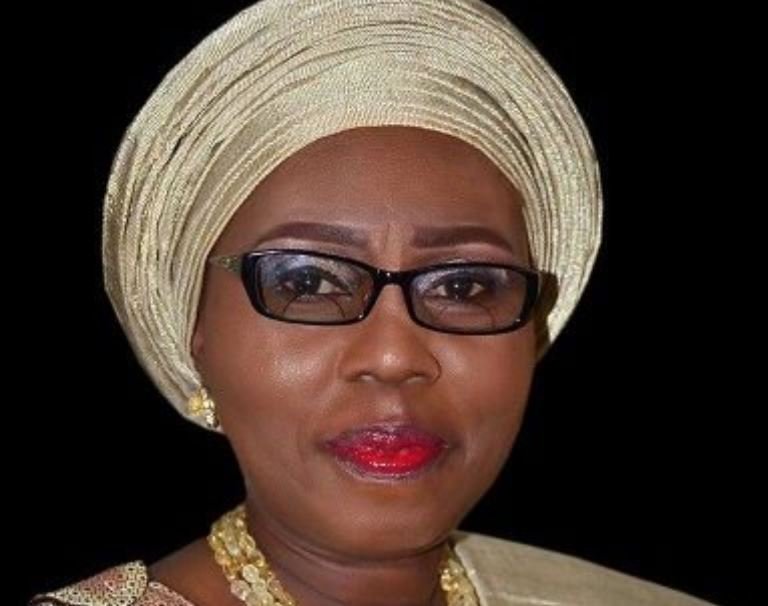For the sixth day in a row, no death has been recorded in Nigeria according to the data from the Nigeria Centre for Disease Control (NCDC). However 110 new cases of COVID-19 were recorded on Wednesday.
The last time the health agency recorded a death was on April 1 when the toll increased by one to 2,058.
Wednesday’s new cases were reported from 11 states, including Lagos (24), Yobe (24), FCT (16), Bayelsa (10), Rivers (10), Kaduna (10),Nasarawa (5), Akwa Ibom (4), Bauchi (3), Edo (3), and Plateau(1).
To date, the country has recorded 163,440 cases of the virus out of which 153,788 have recovered.
On Tuesday, the Federal Government took delivery of 100,000 more doses of the AstraZeneca vaccine from the Indian government as vaccination efforts continue across the country.
Nigeria had received 3.94 million Oxford/AstraZeneca vaccine doses from the WHO-backed vaccine initiative COVAX in early March, triggering the commencement of the country’s vaccination drive.
As of Wednesday afternoon, Nigeria had vaccinated 964,387 eligible persons against the Covid-19 virus, according to the National Primary Health Care Development Agency.
The additional vaccines from India are expected to boost the country’s efforts to vaccinate most of its population against the virus.
The Federal Government has said it is seeking to vaccinate no fewer than 70 percent of its over 200 million-strong population.
More vaccine doses are still expected from COVAX as well as from an African Union scheme financed by the African Export-Import Bank.
AstraZeneca Fears
Meanwhile, fears have grown over the absolute safety of the AstraZeneca vaccines which Nigeria is heavily dependent on for its vaccination program.
Britain on Wednesday said it would adopt new medical advice to offer most people under 30 an alternative to the AstraZeneca coronavirus jab if possible, due to concerns over blood clots.
A potential blow to the UK’s highly successful Covid-19 vaccine programme, it comes after the country’s medicines regulator reassessed the shot’s safety following dozens of clotting incidents among people who had received it.
The MHRA regulator said its “rigorous scientific review of all available data” had found 79 blood clots and 19 deaths among people who had received one of the 20 million AstraZeneca doses administered in the UK.
It insisted such incidents remained “extremely rare”.
The European Medicines Agency said earlier that clots should be listed as a “very rare” side effect of the vaccine. Both bodies however said that it should still be used, as the dangers from catching coronavirus were greater than those of receiving the jab.
AstraZeneca released a statement saying that the two studies “reaffirmed” that the benefits of its vaccine “far outweigh the risks”.
But Britain’s Joint Committee on Vaccination and Immunisation (JCVI), which advises the government, said that given the lower risk posed by the virus to young people, it would change its guidance for them.
“Adults who are aged 18 to 29 years old who do not have an underlying health condition… should be offered an alternative Covid-19 vaccine in preference to the AstraZeneca vaccine,” Wei Shen Lim of the JCVI told journalists.
The alternatives, which in Britain currently are vaccines developed by US firm Moderna and Pfizer-BioNTech, should be offered “if available”, he said.
AstraZeneca said in its statement that it was “already working to understand the individual cases, epidemiology and possible mechanisms that could explain these extremely rare events”.











